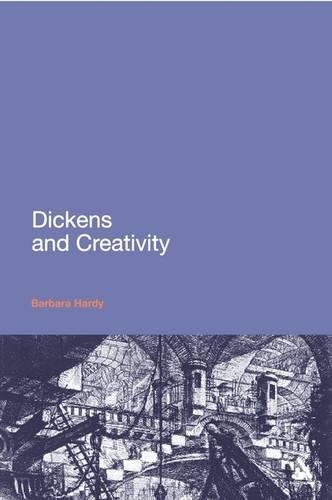
Dickens and Creativity
(Paperback)
Available Formats
Publishing Details
Dickens and Creativity
By (Author) Professor Barbara Hardy
Bloomsbury Publishing PLC
Continuum International Publishing Group Ltd.
24th July 2008
United Kingdom
Classifications
Tertiary Education
Non Fiction
Literary studies: c 1800 to c 1900
823.8
Physical Properties
Paperback
200
Width 156mm, Height 234mm
Description
Charles Dickens's experience and imagining of creativity is at the heart of his self-awareness, subject-matter and narrative. His intelligence works intuitively rather than conceptually and ideas about imagination often emerge informally in personal letters and implicitly through characters, language and story. His self-analysis and reflexive tendency are embedded in his styles and forms of narrative and dialogue, images of normality, madness, extremity, subversion and disorder, poetry and inter-textuality, anticipating and shaping the languages of modernism, influencing James Joyce and Virginia Woolf as well as traditionalists like H.G. Wells and Evelyn Waugh.
Discussing Dickens's novels and some of his letters, sketches, essays and stories, Barbara Hardy offers a fascinating demonstration of creativity.
Reviews
'Hardy's detailed knowledge of the novels, particularly the early works, is evident as she ranges widely among them' -Modern Language Review, January 2010
"[Barbara Hardy] has been consistently interested in artistry and form, the moral and ethical dimensions of fiction, the functions of narrators, and the power of imagination. All these interests combine in her latest book, a series of linked essays about Dickens's creativity...Anyone who reads Dickens for pleasure will find in Barbara Hardy's analyses further reasons to marvel at his fecund and ethical creativity" -- English Studies, Vol 91, No. 2, April 2010
Briefly reviewed in the Year's work in English Studies journal, vol 89, No. 1 [The author] with great insight examines Shakespeare's influence on Dickens and Dickens's impact on subsequent writers'
"Barbara Hardy's book conjures up the imaginative force of Dickens's novels with a verve and insight worthy of the novelist." - Leonee Ormond, Emeritus Professor, King's College London, UK
"Hardy (emer., Birbeck College, Univ. of London, UK) uses Dickens's statements in his letters about his creative process--he wrote of being in an inspired, exalted state--to examine various storytellers in his published works. Looking at narrators and other characters (both major and minor), the author analyzes Shakespeare's influence on Dickens and also Dickens's influence on later writers. Little Dorrit, which the author calls "intensively introspective," receives its own chapter for a detailed examination of the creative mind. Readers who are new to Dickens will like the chapter titled "A Career and Its Context," which provides a succinct summary and commentary on all Dickens's novels and many of his sketches and stories. This comprehensive, well-researched study will surely be regarded as the definitive word on the topic of Dickens's creativity. Summing Up: Highly recommended. Upper-division undergraduates through faculty." - K. Tllyan, CHOICE, April 2009
"Readers who are new to Dickens will like the chapter titled 'A Career and its Context,' which provides a succinct summary and commentary on all Dickens' novels and many of his sketches and stories. This comprehensive, well-researched study will surely be regarded as the definitive word on the topic of Dickens' creativity. SUMMING UP: Highly recommended." - Choice * Choice *
Author Bio
Barbara Hardy is a poet, autobiographer and novelist, as well as a critic whose books include three on George Eliot and three on Dickens. She is Emeritus Professor at Birkbeck, University of London, Honorary Professor of the University of Wales, Swansea,and Fellow of the Royal Society of Literature and the British Academy.
